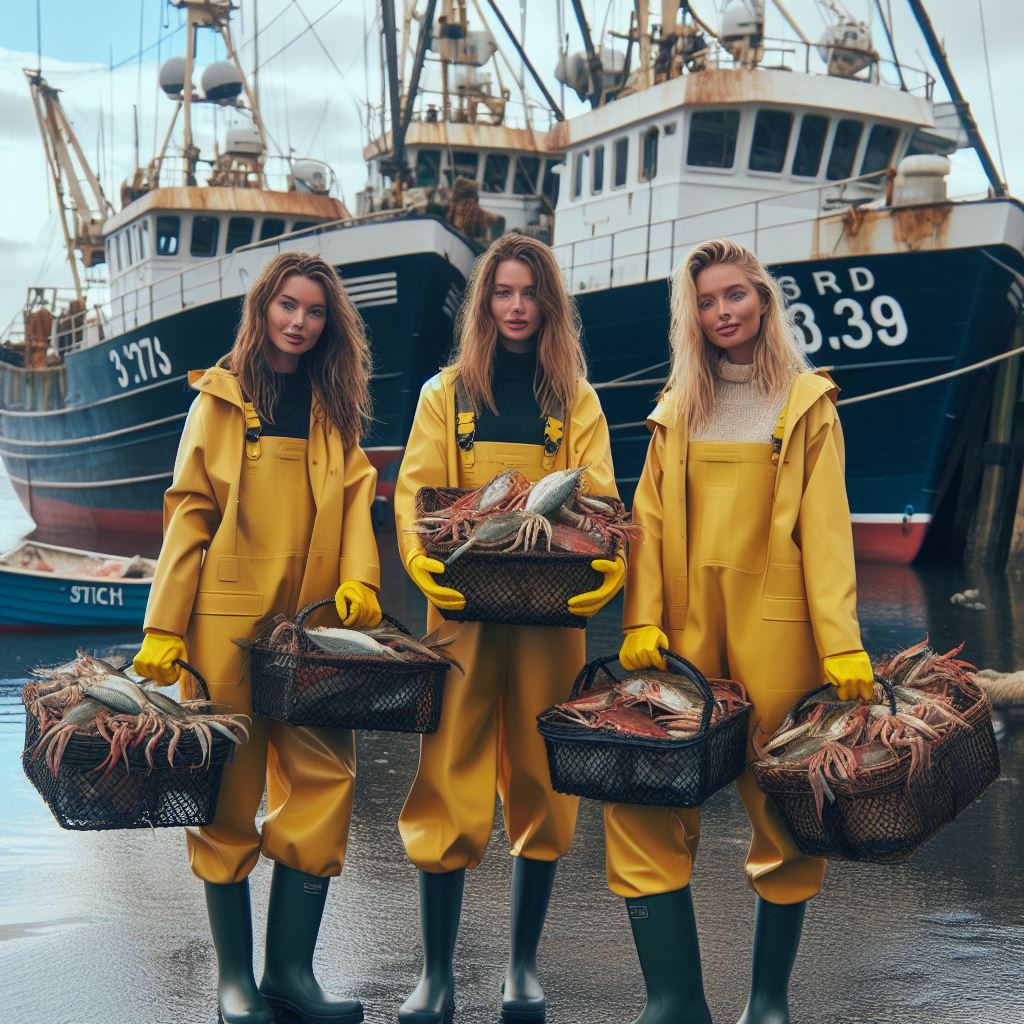Introduction
Fishing licenses are permits required by law to legally engage in recreational or commercial fishing activities. Understanding Aussie rules regarding fishing licenses is essential to avoid penalties or fines.
Fishing licenses are official permits issued by government authorities to individuals or businesses allowing them to fish domestically. They regulate fishing activities, ensuring sustainability, and conserving fish populations.
Understanding Aussie rules is crucial to comply with specific fishing regulations in Australia. These rules vary from state to state, covering bag limits, size restrictions, closed seasons, and prohibited species.
Failing to comply with regulations can result in penalties, seizure of equipment, or even criminal charges. Therefore, being aware of and adhering to Aussie rules is vital for responsible fishing.
Moreover, understanding the rules helps protect fish populations and their habitats, ensuring sustainable fishing practices. It also contributes to preserving marine ecosystems, biodiversity, and supporting the livelihoods of fishing communities.
By obtaining the necessary fishing licenses and following Aussie rules, anglers contribute to the preservation of Australia’s unique aquatic environment and help maintain its reputation as a fishing destination.
In review, fishing licenses are essential for legal fishing in Australia. Understanding Aussie rules is crucial to avoid penalties, protect fish populations and ecosystems, and support sustainable fishing practices.
By following these rules, anglers contribute to the conservation of Australia’s aquatic resources.
Overview of Fishing Licenses in Australia
Definition and Purpose of Fishing Licenses
- Fishing licenses are permits required by individuals to engage in fishing activities legally.
- The purpose of fishing licenses is to regulate and manage fish populations and ensure sustainable fishing practices.
Different Types of Fishing Licenses Available
Recreational Fishing Licenses
- Recreational fishing licenses are for individuals who fish for personal or non-commercial purposes.
- These licenses are typically obtained by recreational anglers for leisure and sport fishing.
- They allow individuals to catch a limited number of fish and are subject to specific regulations.
Commercial Fishing Licenses
- Commercial fishing licenses are for individuals or businesses engaged in fishing activities for profit.
- These licenses are more stringent and require adherence to additional rules and regulations.
- Commercial fishermen must comply with catch limits, quotas, and reporting requirements.
Legal Requirements for Obtaining and Using Fishing Licenses
- To obtain a fishing license in Australia, individuals must meet certain eligibility criteria.
- These criteria may include minimum age requirements and residency or citizenship status.
- Applicants may need to provide identification documents and pay the required fees.
- Once obtained, fishing licenses must be carried by the license holder while engaged in fishing activities.
- License holders must also comply with fishing regulations, including size limits, bag limits, and fishing seasons.
- Fishing licenses are usually valid for a specific period, and individuals must renew them accordingly.
- Failure to comply with fishing license regulations can result in penalties, fines, or license suspensions.
In essence, fishing licenses in Australia are essential for maintaining sustainable fishing practices and managing fish populations. Recreational and commercial fishing licenses differ in purpose and requirements.
Obtaining and using fishing licenses involve meeting legal criteria, carrying the license while fishing, and complying with fishing regulations. Failure to follow these rules can lead to penalties and license suspensions.
By understanding and adhering to fishing license regulations, individuals can enjoy fishing responsibly and contribute to the preservation of Australia’s aquatic resources.
Read: Australian Farming: Techniques and Innovations
Recreational Fishing Licenses in Australia
Detailed explanation of recreational fishing licenses
- Who needs a recreational fishing license?
- Benefits of obtaining a recreational fishing license
Recreational fishing licenses are permits required for individuals who engage in fishing activities for non-commercial purposes.
Any person aged 18 years and above who wishes to fish recreationally in Australia needs a fishing license.
Obtaining a recreational fishing license offers numerous benefits to both the license holder and the environment.
License holders have legal access to public waters and can partake in recreational fishing activities.
Furthermore, these licenses contribute to the protection and conservation of fish populations and their habitats.
Application process for obtaining a recreational fishing license
- Registration requirements
- Steps to apply for a recreational fishing license
Applying for a recreational fishing license in Australia involves fulfilling certain registration requirements.
Your Personalized Career Strategy
Unlock your potential with tailored career consulting. Get clear, actionable steps designed for your success. Start now!
Get StartedThese requirements typically include providing personal details, proof of identification, and payment of the license fee.
To apply for a recreational fishing license, individuals can visit the official government website or contact local authorities.
It is essential to complete the application form accurately and provide all the required supporting documents.
Once the application is submitted and approved, the recreational fishing license will be issued to the applicant.
Limitations and regulations for recreational fishing license holders
- Bag and size limits
- Seasonal restrictions
- Protected species
Recreational fishing license holders must adhere to certain limitations and regulations to ensure sustainable fishing practices.
Bag and size limits specify the number and size of fish that can be caught and kept by a license holder.
These limits help prevent overfishing and maintain healthy fish populations to sustain the ecosystem.
Seasonal restrictions may be imposed to protect vulnerable breeding periods or specific fish species during their breeding seasons.
Protected species, such as endangered or vulnerable fish species, must be released immediately if accidentally caught.
Additionally, license holders must be aware of any specific rules or regulations pertaining to a particular fishing location.
In fact, obtaining a recreational fishing license in Australia is crucial for engaging in recreational fishing activities legally and responsibly.
These licenses not only grant access to public waters but also contribute to the conservation and sustainability of fish populations and habitats.
By adhering to bag and size limits, seasonal restrictions, and respecting protected species, license holders help maintain the balance of the aquatic ecosystem.
Applying for a recreational fishing license involves fulfilling registration requirements and submitting an application form. It is essential to comply with all regulations to ensure the long-term viability of recreational fishing for future generations.
Read: Day in the Life of an Aussie Farmer: Real Stories
Find Out More: Water Management by Agri Experts
Delve into the Subject: Forestry Careers: Demand in Australia
Stand Out with a Resume That Gets Results
Your career is worth more than a generic template. Let us craft a resume and cover letter that showcase your unique strengths and help you secure that dream job.
Get HiredCommercial Fishing Licenses in Australia
Fishing is a significant industry in Australia, and commercial fishing licenses play a crucial role in regulating and managing fishing activities.
Understanding the rules and regulations associated with these licenses is essential for both license holders and those planning to obtain a license.
Explanation of commercial fishing licenses
- Commercial fishing licenses serve a specific purpose and have a defined scope.
- There are various types of commercial fishing licenses available depending on the fishing activities.
Commercial fishing licenses are granted to individuals or companies to conduct fishing activities for commercial purposes. These licenses serve a specific purpose and have a defined scope.
There are different types of commercial fishing licenses available to accommodate various fishing activities. Some licenses may be specific to a particular species, while others may cover a broader range of fishing activities.
Requirements for obtaining a commercial fishing license
- To be eligible for a commercial fishing license, applicants must meet specific criteria and possess relevant qualifications.
- The application process for obtaining a commercial fishing license includes submitting necessary documents and paying associated fees.
Obtaining a commercial fishing license requires meeting specific eligibility criteria and possessing relevant qualifications.
The criteria may include factors such as experience in the fishing industry, compliance with fishing regulations, and protection of marine resources.
The application process for a commercial fishing license involves submitting necessary documents, such as proof of identity, fishing experience, and business registration details.
Applicants are also required to pay associated fees to cover administrative and licensing costs.
Rules and regulations for commercial fishing license holders
- Commercial fishing license holders must adhere to catch limits and quotas to ensure sustainable fishing practices.
- Specific gear and vessel requirements need to be followed by commercial fishing license holders for safety and efficiency.
- Commercial fishing license holders must also consider environmental factors and take necessary precautions to minimize impact on the ecosystem.
Commercial fishing license holders are bound by a set of rules and regulations to ensure sustainable fishing practices and protect the marine environment.
One of the key regulations is the imposition of catch limits and quotas. License holders must adhere to these limits to prevent overfishing and maintain the health of fish stocks. Failure to comply may result in penalties or even license suspension.
License holders are also required to comply with specific gear and vessel requirements. These requirements aim to promote safe and efficient fishing practices, minimize bycatch, and protect non-target species.
Additionally, license holders need to consider environmental factors and take necessary precautions to minimize the impact of their fishing activities on the ecosystem.
This includes avoiding sensitive areas, minimizing waste and pollution, and participating in conservation initiatives.
By understanding the purpose, requirements, and regulations associated with commercial fishing licenses, individuals and companies can engage in responsible fishing practices while contributing to the sustainability of Australia’s fishing industry.
Read: Youth in Farming: Australia’s New Generation

Learn More: Aussie Agri Science: Career Paths
Understanding Aussie Rules for Fishing Licenses
Variations in fishing rules across Australian states and territories
- Australia has different fishing rules and regulations in each state and territory.
- Understanding these variations is essential to ensure compliance with local fishing regulations.
- Each region has specific requirements for fishing licenses, bag limits, and size restrictions.
- Familiarize yourself with the rules of the area you intend to fish in.
Importance of understanding and complying with local fishing regulations
- Failing to comply with fishing rules can result in fines, penalties, or even legal consequences.
- By understanding and following the regulations, you contribute to sustainable fishing practices.
- Compliance helps protect fish populations, prevent overfishing, and preserve the marine ecosystem.
- Respecting the rules also promotes ethical angling and demonstrates responsible fishing behavior.
Accessing official guidelines and resources for fishing rules in different areas
- Official government websites provide comprehensive information on fishing rules in each state and territory.
- These websites usually offer downloadable brochures, maps, and guides for easy reference.
- Local fishing tackle shops, bait and tackle stores, and angling clubs can also provide guidance.
- Additionally, consulting experienced local anglers can provide valuable insights into specific fishing areas.
- Regularly check for updates and changes to fishing rules, as regulations may vary over time.
Now that you understand the variations in fishing rules across Australia’s states and territories, the importance of complying with these regulations, and how to access official guidelines and resources, you can confidently plan your fishing trips.
Remember, responsible fishing ensures the sustainability of our precious marine resources. Happy fishing!
Read: Farm-to-Table Movement: An Australian Perspective
Transform Your LinkedIn for Maximum Impact
Elevate your professional brand with a LinkedIn profile that attracts recruiters, showcases your expertise, and maximizes opportunities. Stand out in your industry with a profile built for success.
Boost ProfileGain More Insights: Enviro Risk Management in Aussie Agriculture
Uncover the Details: Climate Change: AU Enviro Manager’s Response
See Related Content: Future of Agri Science in Australia
Conclusion
A fishing license is vital for anglers in Australia, and this blog section explored the key points surrounding this requirement. Following are the highlights:
- Obtaining a fishing license is mandatory for anyone engaging in recreational fishing in Australia.
- The issuance of fishing licenses is regulated by the government to ensure sustainable fishing practices.
- License fees contribute to research, conservation, and management efforts to protect Australia’s aquatic ecosystems.
- Fishing regulations vary between states and territories, so it is crucial to familiarize yourself with the specific rules.
- Penalties for fishing without a license or disregarding fishing regulations can be severe and include fines and possible confiscation of equipment.
Obtaining and abiding by fishing licenses is not only a legal requirement but also plays a significant role in preserving Australia’s marine environment.
By adhering to fishing rules, anglers contribute to the sustainability of fish populations and ensure future fishing opportunities for all.
We encourage all readers to take the time to familiarize themselves with the specific fishing regulations in the area they plan to fish.
This knowledge will enhance not only their fishing experience but also their role as responsible stewards of Australia’s diverse aquatic ecosystems.




